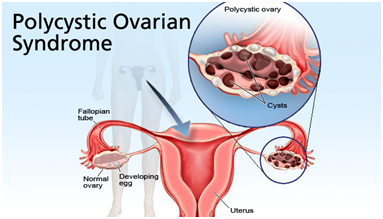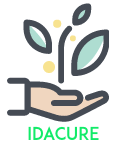Title:Natural Approaches to Managing PCOD: Beyond Medication
Introduction:
Polycystic Ovary Syndrome (PCOS), also known as Polycystic Ovary Disorder (PCOD), is a hormonal disorder that affects many women worldwide. Characterized by irregular periods, excessive androgen levels, and the formation of small cysts on the ovaries, PCOD can lead to various symptoms such as weight gain, acne, hirsutism, and fertility issues. While medication can be beneficial in managing PCOD symptoms, it is essential to explore alternative therapies that focus on lifestyle changes and natural remedies. In this blog, we will delve into some effective PCOD therapies that do not involve medication, aiming to provide women with additional tools to address this condition and improve their overall well-being.
I. The Role of Diet and Nutrition in PCOD Management
Adopting a Balanced Diet: A crucial aspect of PCOD management involves making dietary changes. Emphasizing whole foods, such as fruits, vegetables, whole grains, and lean proteins, while limiting processed and sugary foods can help regulate blood sugar levels and reduce insulin resistance, which is often associated with PCOD.
Low Glycemic Index (GI) Foods: Including low GI foods in the diet can help prevent rapid spikes in blood sugar and insulin levels. Foods like whole grains, legumes, and non-starchy vegetables have a low GI and can aid in managing PCOD symptoms.
The Importance of Healthy Fats: Incorporating healthy fats, such as those found in avocados, nuts, and olive oil, can promote hormone balance and support the body’s natural processes.
Nutritional Supplements: Certain supplements, like inositol, vitamin D, and omega-3 fatty acids, have shown promising effects in PCOD management. However, it is crucial to consult a healthcare professional before starting any supplementation.
II. Exercise and Physical Activity
Benefits of Regular Exercise: Engaging in regular physical activity can help manage weight, reduce insulin resistance, and improve hormonal balance. Activities like aerobic exercises, strength training, and yoga have been found to be beneficial for women with PCOD.

Stress Reduction: Chronic stress can exacerbate PCOD symptoms by affecting hormone levels. Incorporating stress-reduction techniques like meditation, mindfulness, or spending time in nature can be helpful in managing PCOD.
III. Herbal Remedies and Traditional Therapies
Herbal Remedies: Several herbs, such as saw palmetto, cinnamon, and spearmint, have shown potential in managing PCOD symptoms. However, it is essential to consult with a qualified herbalist or healthcare professional before using any herbal remedies, as they may interact with other medications or health conditions.
Acupuncture: Acupuncture, an ancient Chinese therapy that involves inserting thin needles into specific points on the body, has been explored as a complementary approach to managing PCOD. Some studies suggest that acupuncture can help regulate menstrual cycles and improve fertility in women with PCOD.

IV. Managing PCOD through Lifestyle Changes
Sleep and PCOD: Quality sleep plays a significant role in hormone regulation and overall health. Ensuring adequate sleep and establishing a consistent sleep routine can support PCOD management.
Weight Management: Maintaining a healthy weight through lifestyle changes can positively impact PCOD symptoms. Even a modest weight loss of 5-10% has been shown to improve menstrual regularity and reduce androgen levels.
V. Seeking Professional Support
Collaborating with Healthcare Providers: While natural therapies can be effective in managing PCOD, it is essential to work with healthcare providers who specialize in women’s health and PCOD. A comprehensive approach that combines lifestyle changes and medical expertise can yield the best results.
Regular Health Check-ups: Monitoring PCOD symptoms and progress is crucial in adjusting and optimizing the chosen therapies. Regular check-ups can help identify any potential complications and ensure the chosen approach remains effective.

Conclusion:
Polycystic Ovary Syndrome (PCOS/PCOD) can be a challenging condition for many women, but it is important to remember that there are various non-medication therapies available to manage its symptoms effectively. Emphasizing lifestyle changes, such as adopting a balanced diet, regular exercise, stress reduction, and incorporating natural remedies, can play a significant role in PCOD management. However, it is crucial to work closely with healthcare professionals and experts in the field to tailor an individualized approach that addresses each woman’s unique needs. By combining natural therapies with professional support, women with PCOD can empower themselves to take charge of their health and well-being, leading to improved quality of life and overall happiness.




